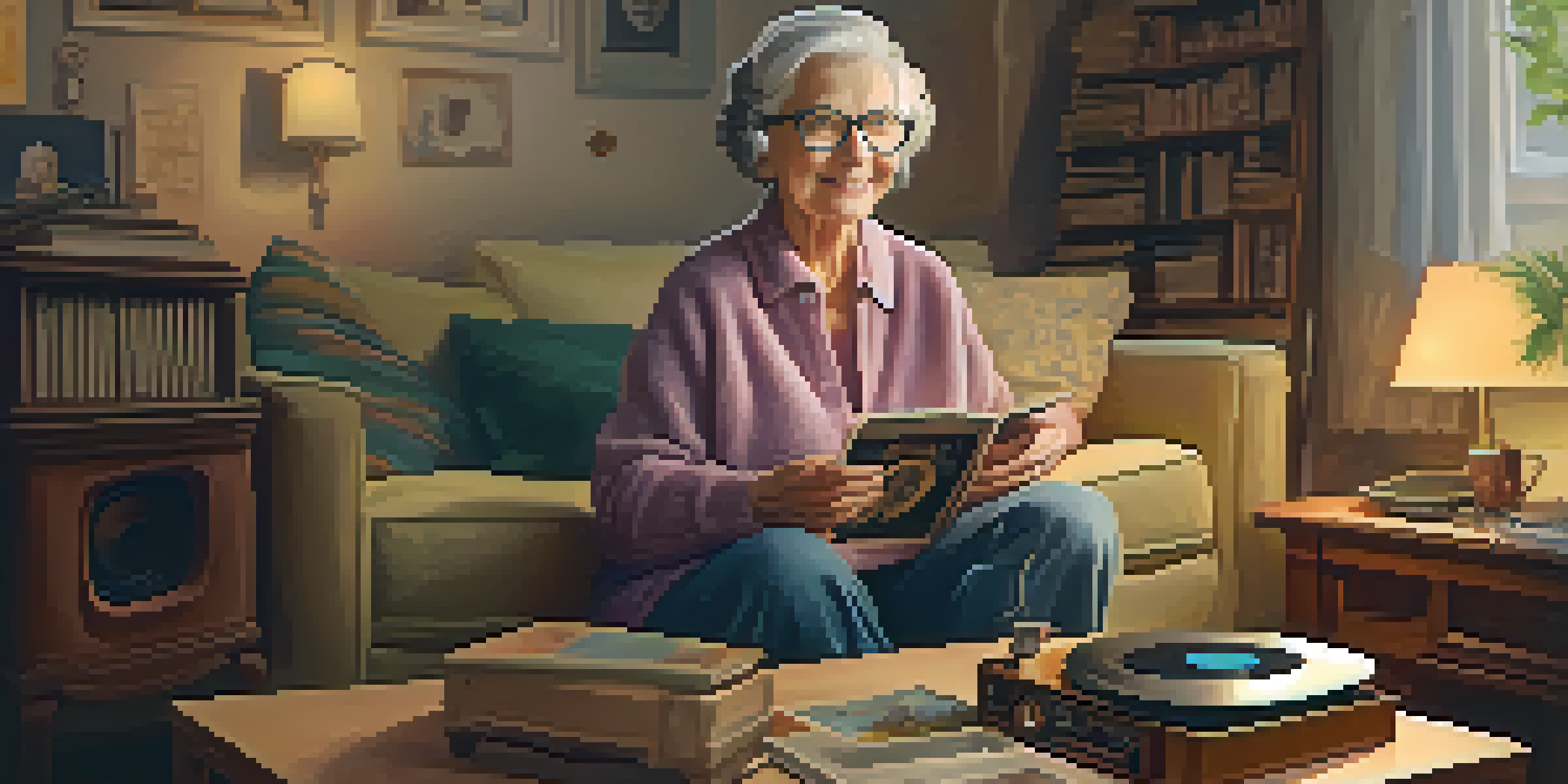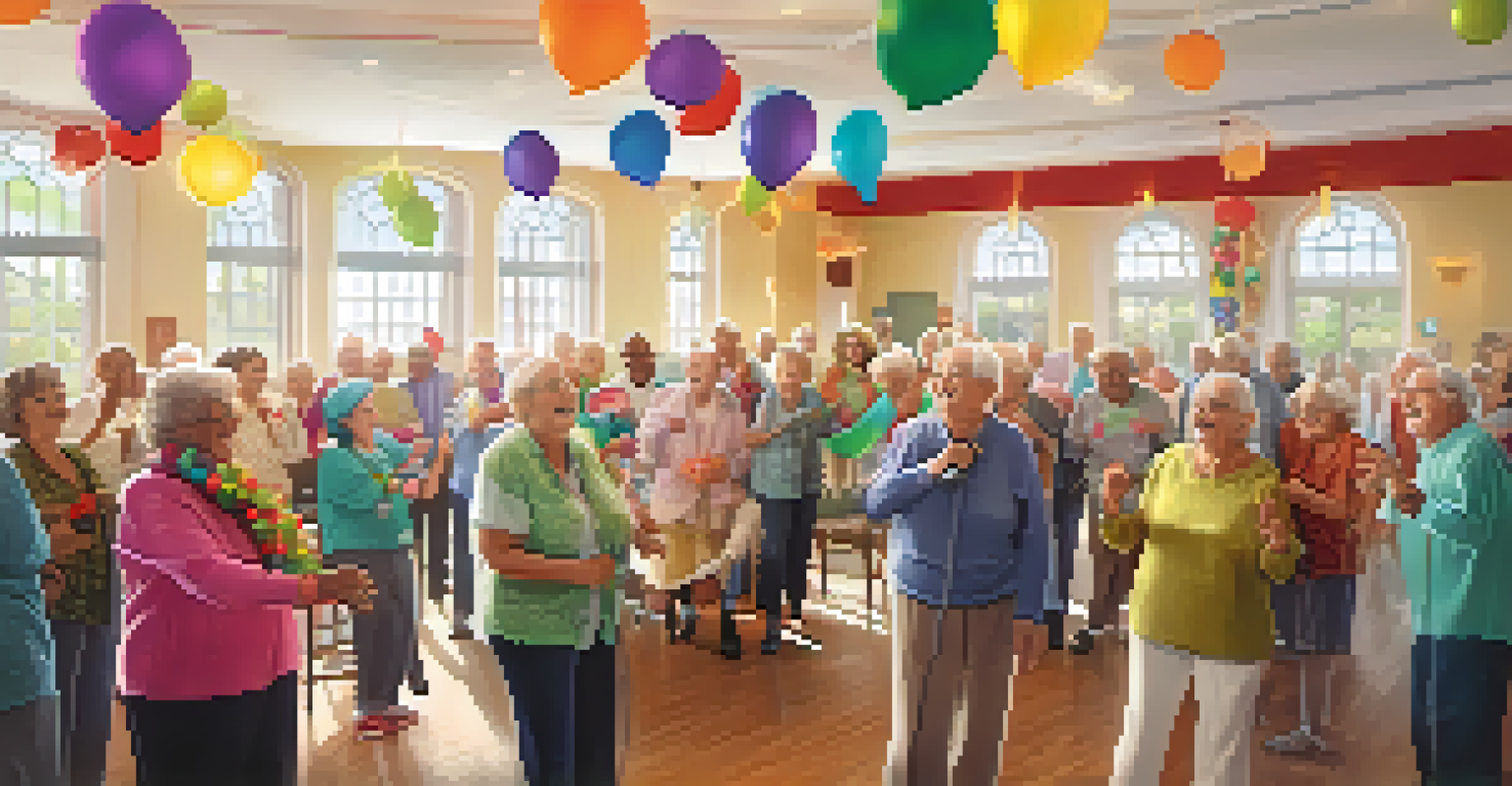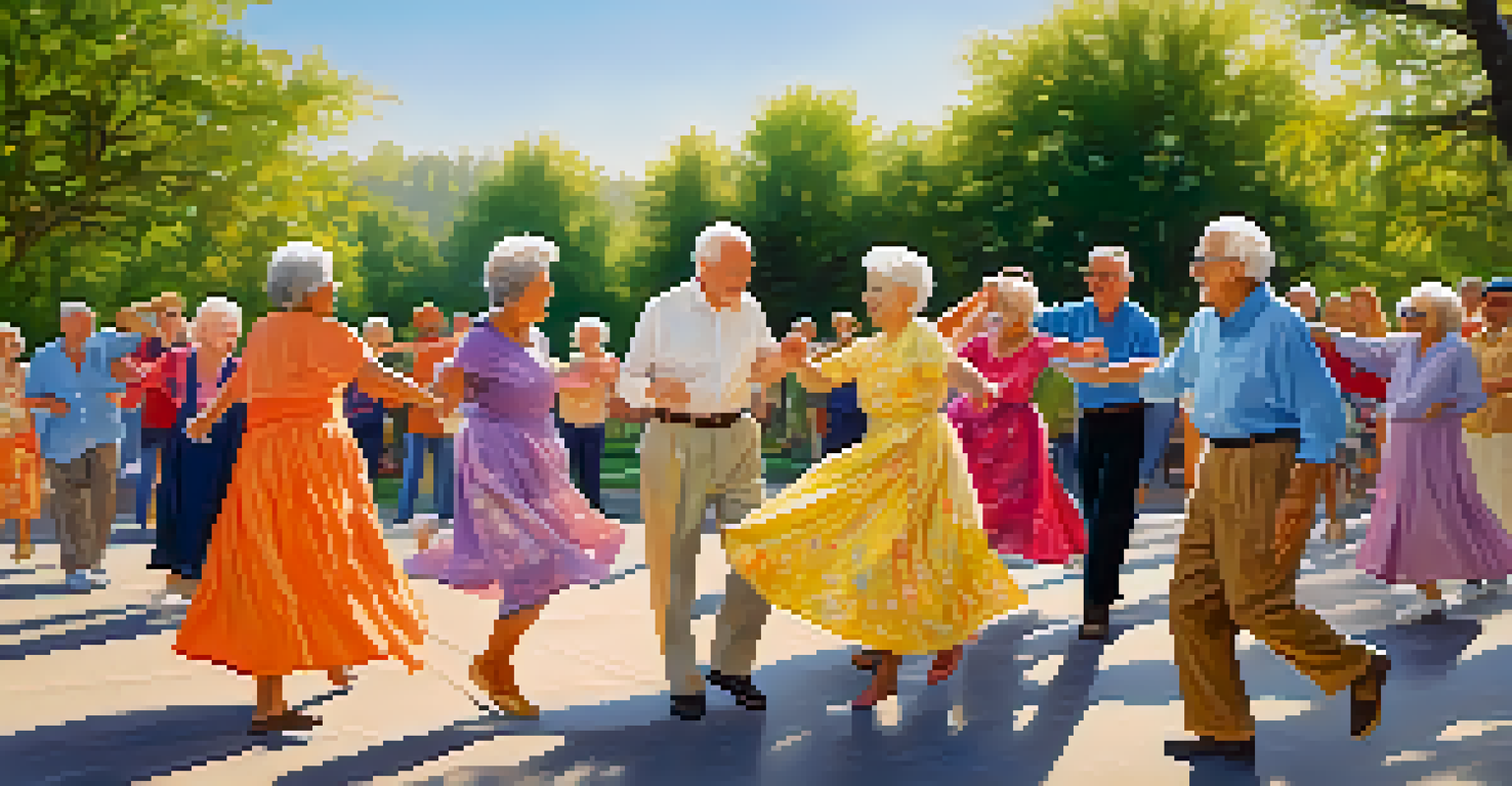The Role of Music in Enhancing Quality of Life for Seniors

Music as a Tool for Emotional Expression and Healing
For seniors, music often acts as a powerful medium for emotional expression. It can evoke memories and feelings that words sometimes fail to capture. Imagine flipping through an old photo album; each song can be like a snapshot, triggering nostalgia and joy.
Music can change the world because it can change people.
Research shows that listening to familiar tunes can boost mood and reduce feelings of loneliness. For many seniors, music can be a comforting companion, especially during times of isolation. It’s like having a friend who knows how to lift your spirits with just the right song.
Moreover, engaging with music—whether through singing, dancing, or playing instruments—can be therapeutic. This engagement stimulates brain function and promotes emotional well-being, making music not just enjoyable, but beneficial.
Cognitive Benefits of Music for Seniors
The connection between music and cognitive health is fascinating. Studies indicate that music can help improve memory and enhance cognitive abilities in seniors. Think of it as a workout for the brain, where familiar melodies act as triggers for recalling past experiences and information.

Participating in musical activities, like group singing or playing in a band, can sharpen focus and listening skills. These activities require mental engagement, helping seniors stay mentally agile. It’s akin to solving a puzzle—the more you practice, the better you become.
Music Boosts Emotional Well-Being
For seniors, music serves as a powerful tool for emotional expression, evoking memories and reducing feelings of loneliness.
Additionally, music therapy is increasingly used in treating cognitive decline, such as Alzheimer's disease. By tapping into the emotional and memory centers of the brain, music can provide comfort and connection, creating moments of clarity amidst confusion.
Social Connections Fostered by Music
Music has a unique ability to bring people together, and for seniors, this can be particularly important. Group activities centered around music, like choir or dance classes, encourage social interaction and help combat loneliness. It’s like a bridge that connects hearts and minds, fostering friendships.
Where words fail, music speaks.
Participating in music events or community concerts gives seniors a chance to engage with others who share similar interests. These shared experiences can spark conversations and create lasting bonds. Imagine the joy of discovering a fellow music lover at a community event; suddenly, you have a new friend.
Moreover, online platforms and social media have made it easier for seniors to connect over music. Whether sharing playlists or discussing favorite artists, these interactions can enhance their social circles, keeping them vibrant and active.
The Physical Benefits of Music and Movement
Many seniors find that music encourages them to move, whether through dancing or simple exercises. Movement to music not only elevates mood but also promotes physical health. Think of it as a gentle nudge to get up and stretch your legs while enjoying a favorite tune.
Engaging in musical activities can improve coordination, balance, and overall fitness. Dance classes tailored for seniors offer a fun way to stay active while socializing. It's like turning exercise into a joyous celebration rather than a chore.
Cognitive Benefits of Music
Engaging with music can improve memory and cognitive abilities, acting as a workout for the brain and enhancing mental agility.
Additionally, rhythmic music can serve as a motivational tool during physical therapy or rehabilitation. The beats can help establish a rhythm for movement, making exercises feel less daunting and more enjoyable.
Music's Role in Enhancing Memory and Recall
One of the most remarkable aspects of music is its impact on memory. Familiar songs can unlock forgotten memories, providing seniors with opportunities for reminiscence. Picture a favorite song from youth that brings back vivid memories of a summer romance or a family gathering.
This recall can be particularly beneficial in memory care settings, where music is used to stimulate memories and spark conversations. It’s an effective tool for caregivers seeking to connect with their loved ones. Like a key that unlocks a treasure chest of memories, music can reveal stories long tucked away.
Moreover, listening to music while studying or engaging in cognitive tasks can enhance memory retention. It creates an environment conducive to learning and remembering, making it a simple yet powerful aid.
Music Therapy: A Structured Approach to Healing
Music therapy is a structured, evidence-based practice that uses music to address various health issues. It’s not just about listening to music; it involves active participation and tailored interventions. Think of it as a personalized wellness plan where music takes center stage.
For seniors, music therapy can alleviate symptoms of depression, anxiety, and even physical pain. Therapists design sessions that cater to individual preferences, ensuring a comforting and familiar environment. It’s like having a personal coach who knows how to lift your spirits and soothe your soul.
Social Connections Through Music
Group music activities foster social interaction among seniors, helping to combat loneliness and build lasting friendships.
Additionally, music therapy can enhance communication skills for those with speech difficulties. Through singing and rhythmic exercises, seniors can improve their ability to express themselves, creating a sense of empowerment and confidence.
Incorporating Music into Daily Life for Seniors
Integrating music into daily routines can significantly enhance a senior's quality of life. Simple practices, like playing background music during meals or while engaging in hobbies, can create a pleasant atmosphere. It’s like adding a sprinkle of joy to everyday activities.
Creating personalized playlists can be a fun and meaningful way for seniors to enjoy their favorite songs. This can serve as a soundtrack to their lives, evoking pleasant memories and uplifting their moods. Imagine having a playlist that mirrors your life's journey, each song a cherished moment.

Encouraging family members to join in music-related activities can strengthen bonds as well. Whether it’s a family karaoke night or a dance party in the living room, these shared experiences can create lasting memories and joy.